AGCO and UCAB held first international Fields of Change conference in Brussels
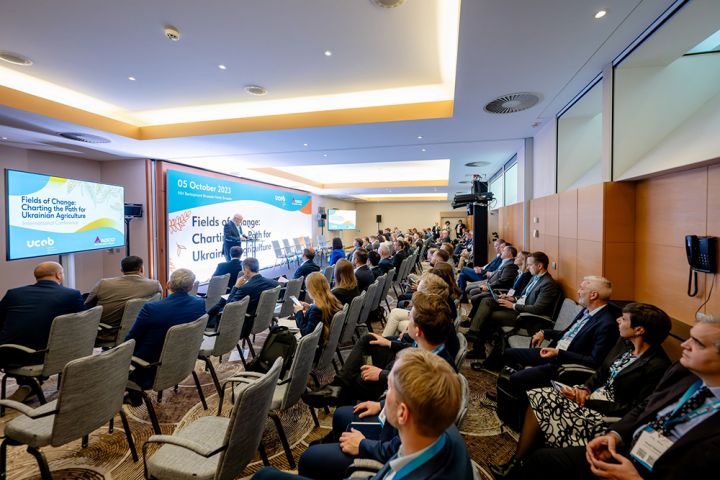
Photo by: УКАБ / UCAB
On October 5, the Ukrainian Agribusiness Club (UCAB) and AGCO Corporation held the first international Ukrainian agricultural conference "Fields of Change: Charting the Path of Ukrainian Agriculture" in Brussels. More than 120 participants, including key Ukrainian and EU policymakers, agribusiness leaders and representatives of financial institutions attended. They shared experiences and discussed support for Ukraine, particularly about agriculture recovery and future directions on its path to EU integration.
“We hope the conference is a springboard for accelerating funding and specific actions in all domains for the development of Ukraine agriculture and farmers who will support future global food security,” said Frederic Devienne, Vice President of Finance and Regional Head of Europe at AGCO Corporation.
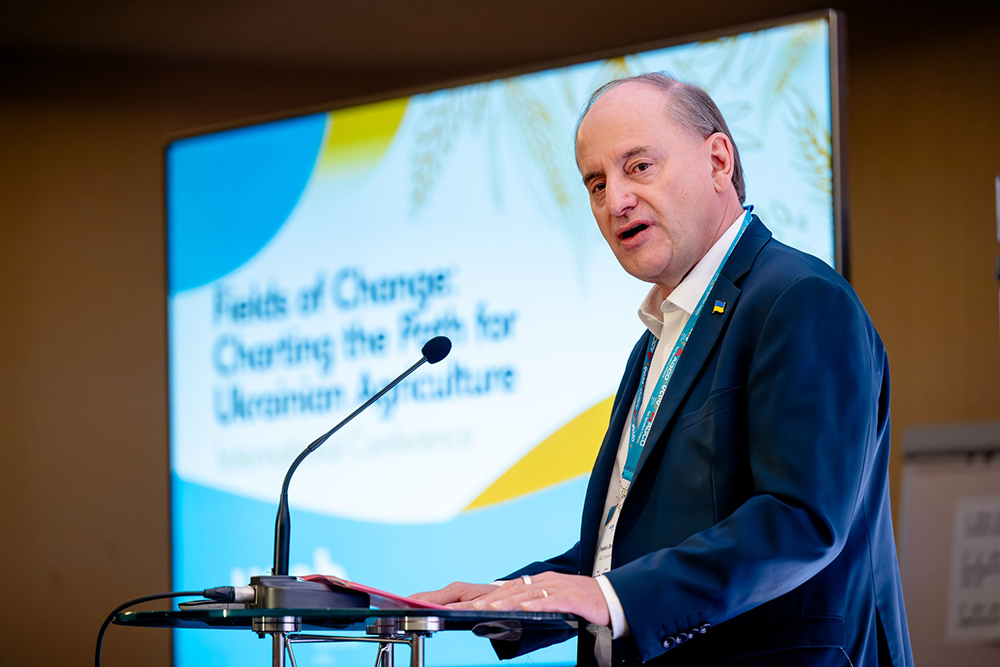
The Ukrainian government has identified agriculture as a key industry that will be a significant contributor to the recovery of Ukraine. It will require extensive multi-stakeholder collaboration to fully develop the potential of the Ukrainian agricultural industry. The conference addressed financing priorities and long-term agricultural projects in a broader context, as well as post-war economic reconstruction and European integration.
Peter Polajnar, Deputy Head of Service for Ukraine at the European Commission's Directorate General for Neighborhood and Enlargement Negotiations (DG NEAR), spoke to participants about future EU assistance to Ukraine.
“Ukrainian business hopes that Europe's institutional framework for Ukraine's recovery – the Ukrainian Facility program – will help our country pass the huge challenges of economic recovery, even when the war is still ongoing,” said Nazar Bobitski, Head of the UCAB EU office. “We need to create a viable economy in Ukraine in the medium term, and at the same time, change its institutional legislation for future EU membership.”
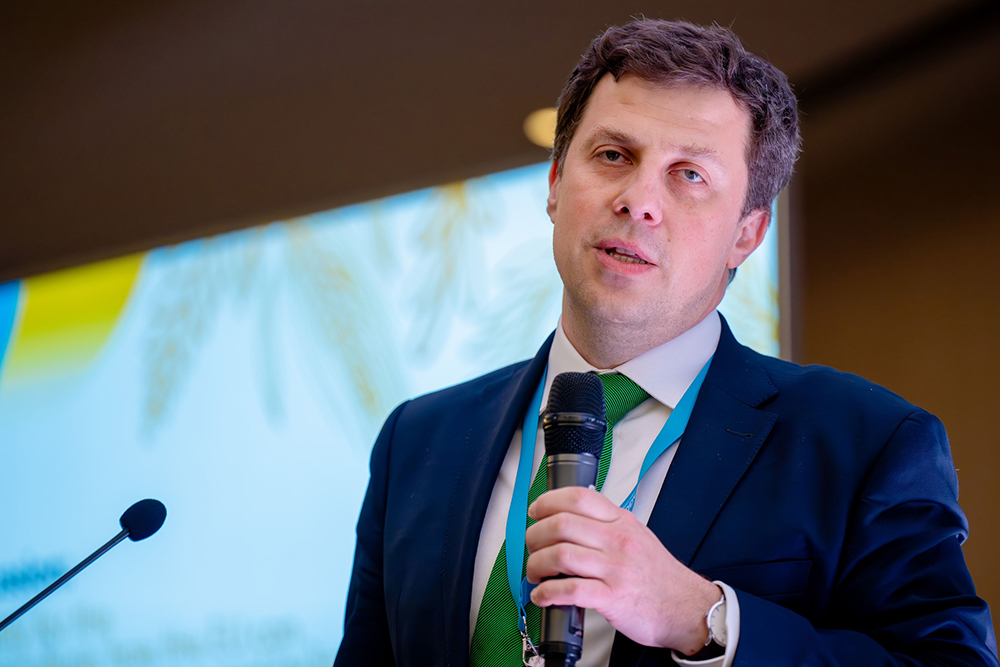
Nazar noted one priority of the UCAB Brussels office will be to communicate closely with relevant European stakeholders to maximize the use of EU financial support tools in the interests of Ukrainian business, in particular, the agricultural sector.
Many agri-holdings attended the event (representing together over 2.5 million hectares of farming land) and stressed that Ukrainian agriculture faces considerable challenges now that undermine its production, profitability and investments.
Aivaras Abromavičius, Chairman of the Board of Agro Region, summarized: “Since the beginning of the full-scale war, Ukraine has already received substantial financial support from international organizations and the Ukrainian community is grateful for this support, however there is an ongoing need for help, in particular in terms of reducing the cost of logistics and assistance in maritime transport insurance, which will give the Ukrainian agricultural sector a chance to survive.”
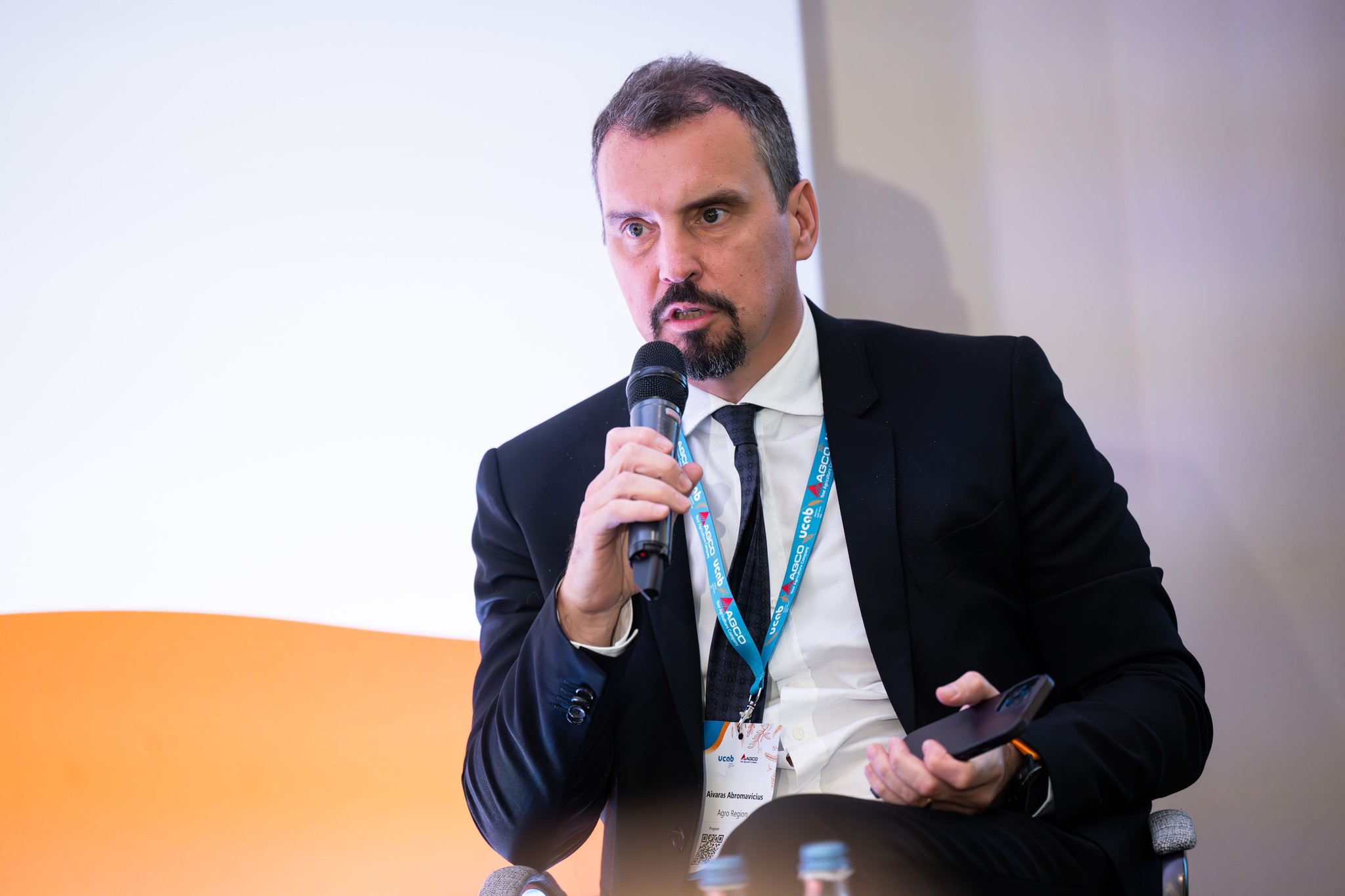
Alex Lissitsa, CEO of IMC, added the immediate steps that Ukrainian farmers need to take today: “Firstly, we need to prioritize efforts to minimize the losses caused by the war. Second, implement a program of targeted financial assistance to support farmers and agribusiness in Ukraine, supported by financial institutions. Third, it is worth investing in security measures for agricultural assets and infrastructure in war-affected regions to reduce the risk of further losses due to instability.
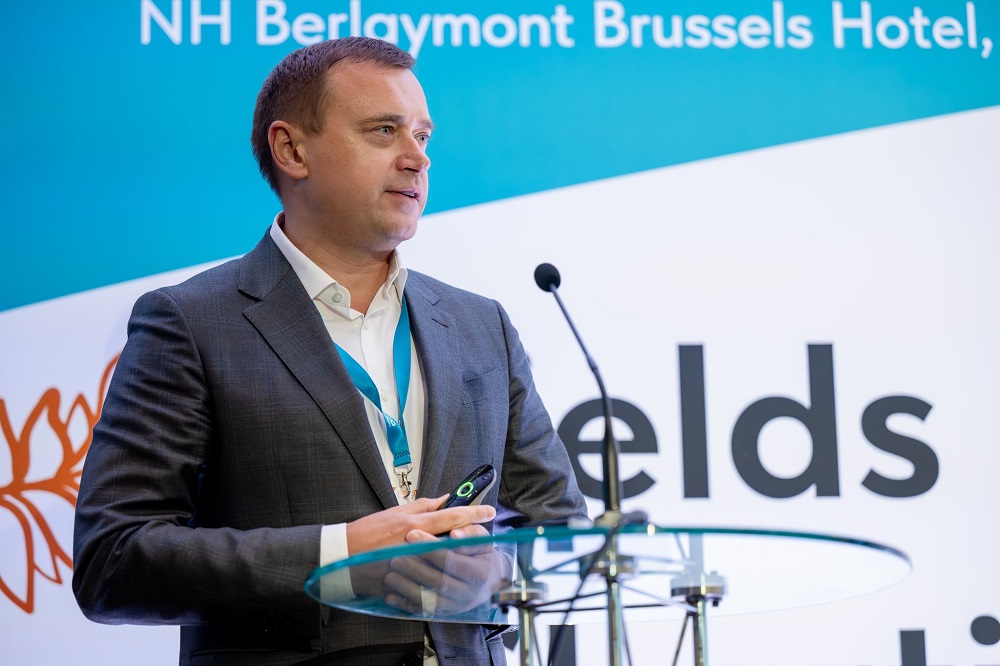
The session focused on financing solutions recognized there are many initiatives and funding commitments, however, as concluded by Anna Naplocha, CEO of AGCO Finance: “We need a renewed sense of urgency and simplified procedures to understand how this money is being channeled down to the farmer level. Risk sharing and more accessible lending conditions require more coordination between international finance institutions and local banks.”
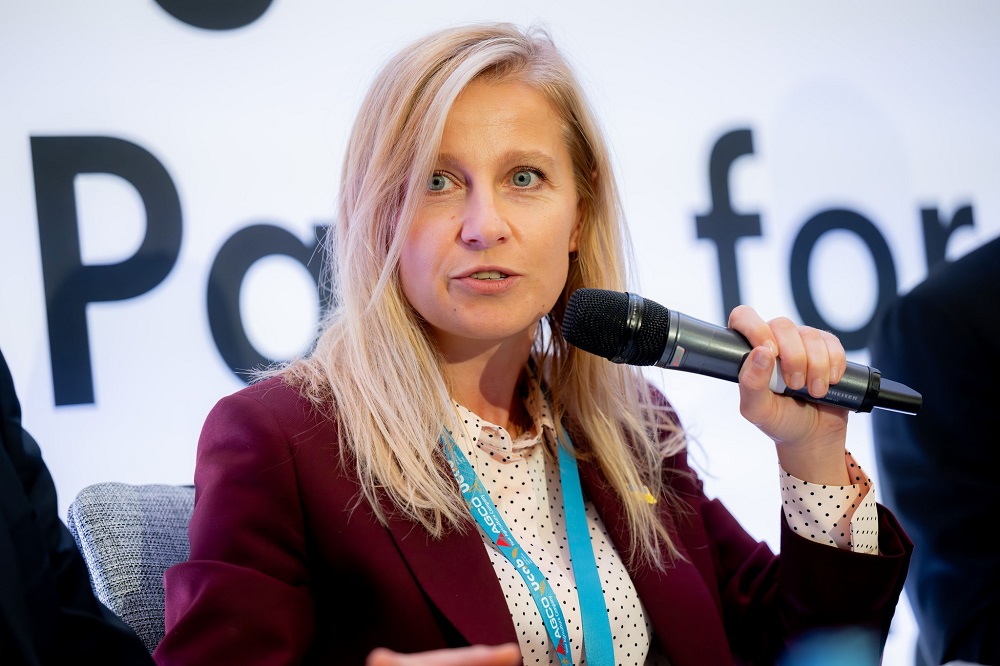
AGCO is committed to being a key stakeholder in the process and will continue working with UCAB to create an overview of available financing schemes and eligibility criteria, forming a first step for more transparency and increasing prospects for Ukrainian farmers.
